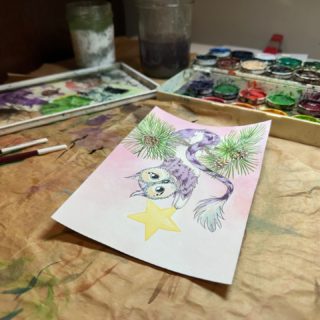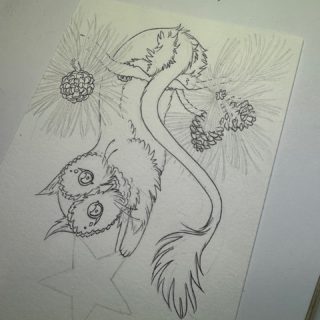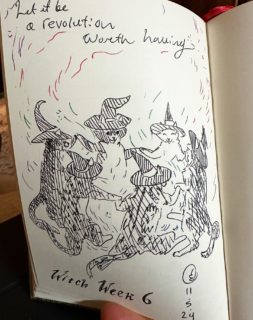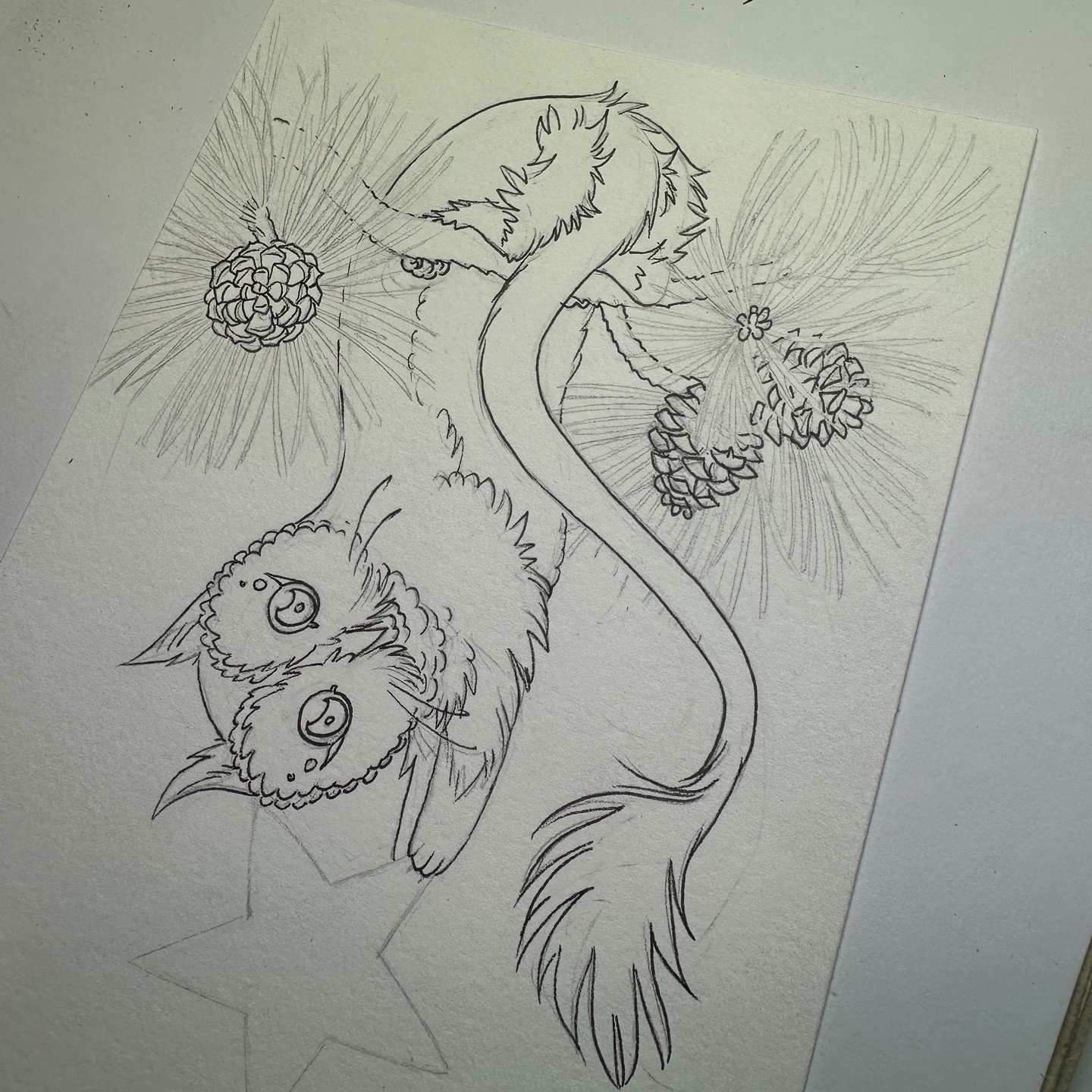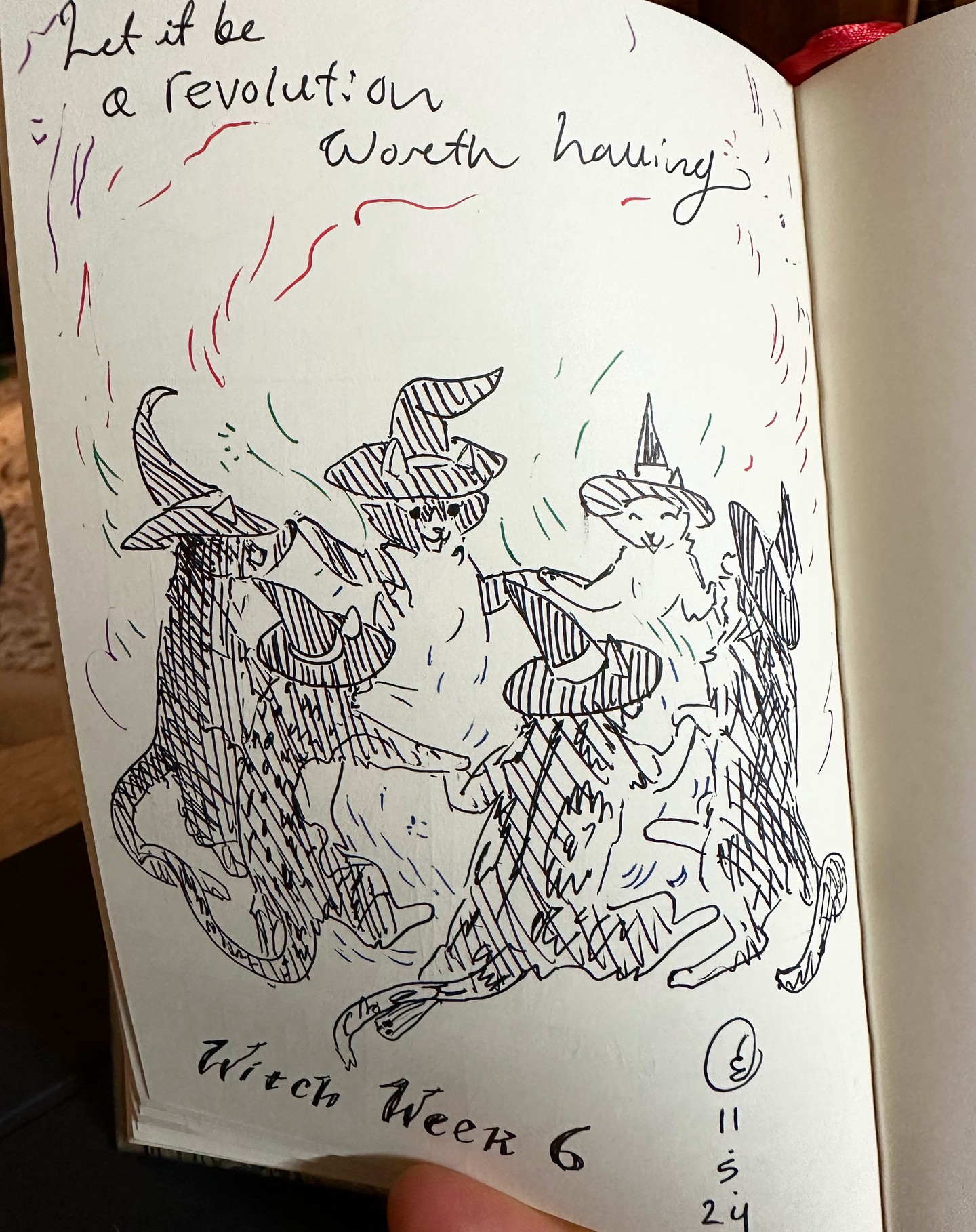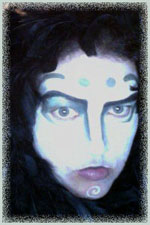 Recently I’ve been watching a lot of True Blood, on DVD. True Blood is an HBO show created by Alan Ball about a telepathic waitress from a small town in Louisiana, set in an alternate narrative of our world in which vampires (and everyone from that happy band: werewolves, witches, minor monsters) are not only real, but vampires have even “come out of the coffin” and are living publicly.
Recently I’ve been watching a lot of True Blood, on DVD. True Blood is an HBO show created by Alan Ball about a telepathic waitress from a small town in Louisiana, set in an alternate narrative of our world in which vampires (and everyone from that happy band: werewolves, witches, minor monsters) are not only real, but vampires have even “come out of the coffin” and are living publicly.
Sounds fun, doesn’t it? Did I mention there’s lots (and I mean lots) of sex too? And wonderful, wonderful vampy goodness (should I say badness?).
Anyway, I’ve been watching it, and really quite enjoying it despite its flaws and its somewhat bullying method of storytelling. But it has made me aware, very clearly, of a factor that seems to present in a lot of fiction—particularly television shows. This is the prevalence of Conflict (must be spelt with a capital C, trust me) as the major driving force behind the story.
Now, there is nothing inherently wrong with this. Most stories have, at their core, some form of Conflict. However, in many stories the Conflict is a by-product of the story. A story about a coming-of-age will probably include the hero beginning to stand up for herself, thus bringing her into conflict with the people in her life who have been exploiting/abusing her. The conflict in a story such as this is not the point, the point is our hero is growing a backbone, and the conflict happens naturally. You can, of course, reverse-engineer this scenario by saying “well, I want to have Conflict in my story, what can I do to bring these two characters into Conflict? I know, one of them is going to grow a back bone and stand up for herself!”
Now, while this may look like just another means to an end, when the focus of the writer is on creating Conflict rather than advancing character development along its natural path, Conflict will become the dominant theme of the story.
I don’t mean this as a bad thing… necessarily. My approach to writing hinges on looking at pre-conceived “rules” and figuring out how I can break them to make my story better, so I don’t like to dismiss any method out of hand.
But.
A lot, and I mean a lot of writers write what I like to call Conflict-Driven Stories. In these stories the writer’s main goal is to throw Conflict into the lives of their characters to produce the story, and these stories all begin to take on a similar feel, and to be honest, it’s not a feeling I particularly like.
You see it especially in US television drama shows. Think about shows like House, Dexter, and, yes, True Blood. Ever notice how no one ever seems to be happy and content in those shows? Well, maybe for like two minutes at the end of the season, but right after usually their wife is murdered in a bathtub, there’s a dead body found in their car, or someone they love up and leaves—ostensibly to demonstrate the Difficult and Conflicted situation the character is in, but really, it’s because the actor wanted to go do a movie with Daniel Craig and Harrison Ford. Suddenly, Conflict again.
For these shows the Conflict becomes almost like an obsessive-compulsive disorder. The writers keep stuffing the story with Conflict, as if it is some magical elixir that will combust into platinum-grade story. Characters who have been getting along swimmingly suddenly have a falling out because of something random and arbitrary that the writers threw in because (and I am quoting a television writer here) “they were getting too happy.”
This obsession with Conflict as a stimulant for story takes a toll, I feel. The constant stress and pressure put on the characters become unbelievable, at a certain point, and in some instances lead to things happening in the story that, in every sense, don’t feel right.
Now, because the writers are so used to things not feeling right in the usual, Conflict-driven sense, they are completely oblivious when they go too far. When they, for the sake of Conflict, introduce (or often take away) something that actually damages the story.
Because as I said at the top, conflict itself is not bad. It is a natural by-product of a good story. Most stories have conflict, the same way most people have acne. But a pimple does not a person make, and if you think you can make an interesting person just by covering them with acne… eventually you’re going to run into the problem that all they are is a walking zit with no personality.
I see this in television all the time, and it really annoys me. But I’m going to use one particular example from True Blood, because it was what got me thinking on this subject today.
I’m going to tell you about Godric, who is a supporting character in Season 2. This next section will describe what happens to him in glorious, spoilerific detail, so if these things matter to you, skip this next section.
Godric is introduced very slowly; he is first mentioned in Episode 1, but you don’t actually see him until around Episode 5, and the main character doesn’t meet him until the very end of Episode 7. By this point his character has been nicely built up as this super-powerful, super-old vampire, and he is played by an otherworldly Danish actor who is about 5’6”. He is probably the shortest member of the cast, and yet he simply radiates power and control. Most notably, and unique among all the other vampires in the series to date, is that he thinks on a higher level. Instead of being out to get things for himself or the people he loves, his greatest desire is to see the conflict between vampires and human (the Conflict that is central to much of the show) resolved.
Needless to say he doesn’t last long; he commits suicide in Episode 9, much to the grief of two principal characters and hordes of fangirls on YouTube.
I wish the writers would listen to those girls. The strain of their comments seemed to be: “Why did Godric have to die? Why, writers, why?”
I’ll tell you why: it’s because True Blood is a Conflict-driven story. Godric’s character, at its core, was that of a conflict-solving person. He was anti-conflict. In one episode he solved more character tension than the entire first season. If left to run wild in the show he could easily have undermined all the nice Conflict the writers had set up for their characters. Clearly, he had to go.
Or did he?
Sometimes you get characters who don’t quite fit in with your story. They are nice to have for a while, but in the long run they won’t work. As a writer, you have two options here: take the character out of the picture; or (and this is what I wish more television writers would do) change the story to fit the character. Godric wouldn’t have worked well, in the long run, in a story driven by Conflict. But if the writers had allowed Godric’s character to drive the story instead, we might have gotten some very interesting results. And who knows, it might have beeen a better story.
I’m going to make this next statement as simply as I can, since I believe it is true and I wish you (writer or reader) to remember it:
Conflict != Story
Yes, there are lots of stories that contain conflict. There are, as I have talked about above, lots of stories that are Conflict-driven. But conflict is not the only thing that drives a story. It is one of many ways to create a story, and when you limit yourself to one method, you are limiting the bounds of your story.
Of course, television is all about limitations: limitations in budget, in time, in actor and location availability. No wonder the writers tend to limit themselves!
I am happy to say not all TV shows are conflict driven. An excellent example of this is Inspector Lewis, which is a British programme (go figure). It is a murder/mystery drama, and so there is some naturally occurring conflict to be found there. What is remarkable is that, for the most part, the principal characters get along astonishingly well. They are united in the common cause of solving a murder, and the inevitable spats they get into are always (so far anyway) resolved in the interest of their common goal.
It is worth mentioning, here at the end, some stories in which the opposite of conflict—friendship—has been just as important to the success of the story as any conflict. I’d like to point out some celebrated friendships, like that of Holmes and Watson, Aubrey and Maturin, Frodo and Sam, and the winding team from Anathem: Lio, Erasmas, Arsibalt and Jesry, whose friendship allowed them to travel farther than any of the others, and to solve a truly enormous potential conflict.
I do not believe conflict itself actuates a story; rather, it is the solution to the conflict that turns a sequence of events into that magical thing we call a story. Conflict is everywhere in our everyday lives, and stories are what happens when that conflict is resolved. So it can be posited that stories created by the solution of conflict must indeed have conflict in the first place, but as I’ve said before, this is not the only kind of story.
But stories that do nothing but introduce one Conflict after the next, with no proper attention paid to their solution, are essentially only half stories; forever b-b-b-b-beginning, never ending.
And despite what the title of a popular fantasy book might lead you to believe, without an ending you haven’t really got a story at all.
If you would like to debate the usefulness of Conflict, or talk about True Blood, you may write the author at goldeenogawa@gmail.com, or peck at her on Twitter @GrimbyTweets.

